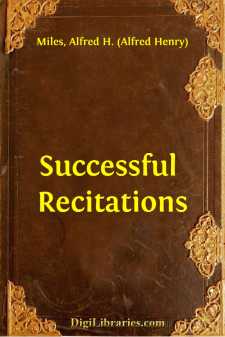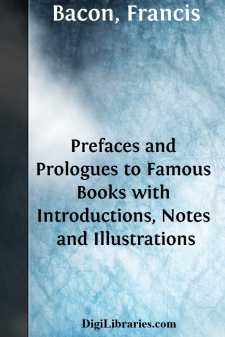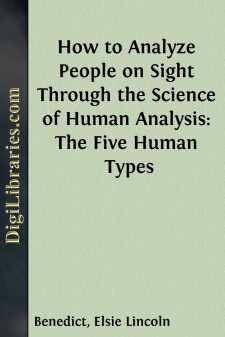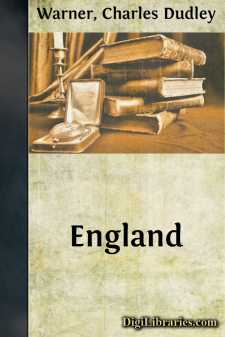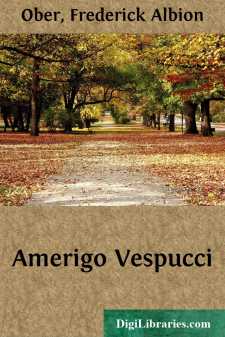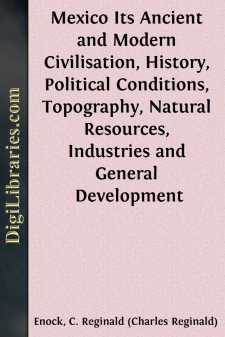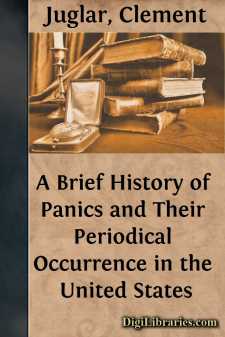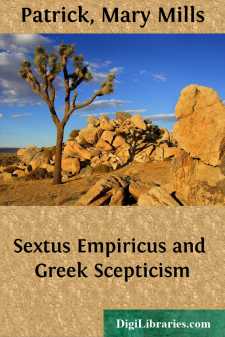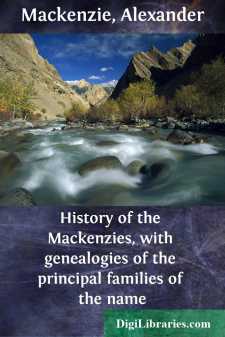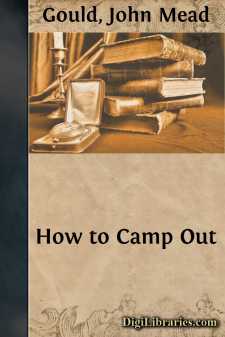Non-Classifiable
- Non-Classifiable 1768
Non-Classifiable Books
Sort by:
JOHN BULL AND HIS ISLAND. BY ALFRED H. MILES. There's a doughty little Island in the ocean,— The dainty little darling of the free;That pulses with the patriots' emotion, And the palpitating music of the sea:She is first in her loyalty to duty; She is first in the annals of the brave;She is first in her chivalry and beauty, And first in the succour of the slave!Then here's...
more...
by:
Francis Bacon
INTRODUCTORY NOTE _No part of a book is so intimate as the Preface. Here, after the long labor of the work is over, the author descends from his platform, and speaks with his reader as man to man, disclosing his hopes and fears, seeking sympathy for his difficulties, offering defence or defiance, according to his temper, against the criticisms which he anticipates. It thus happens that a personality...
more...
Human Analysis—The X-Ray Modern science has proved that the fundamental traits of every individual are indelibly stamped in the shape of his body, head, face and hands—an X-ray by which you can read the characteristics of any person on sight. he most essential thing in the world to any individual is to understand himself. The next is to understand the other fellow. For life is largely a problem of...
more...
England has played a part in modern history altogether out of proportion to its size. The whole of Great Britain, including Ireland, has only eleven thousand more square miles than Italy; and England and Wales alone are not half so large as Italy. England alone is about the size of North Carolina. It is, as Franklin, in 1763, wrote to Mary Stevenson in London, "that petty island which, compared to...
more...
YOUNG AMERIGO AND HIS FAMILY 1451-1470 Cradled in the valley of the Arno, its noble architecture fitly supplementing its numerous natural charms, lies the Tuscan city of Florence, the birthplace of immortal Dante, the early home of Michael Angelo, the seat of the Florentine Medici, the scene of Savonarola's triumphs and his tragic end. Fame has come to many sons of Florence, as poets, statesmen,...
more...
BIBLIOGRAPHY HISTORY The history of Mexico at the time of the Conquest rests upon an accurate basis; the five letters of Cortes to the Spanish Emperor, Carlos V. These have been recently retranslated into, and published in, English in two excellent volumes:The Letters of Cortes to Charles V. F. C. MacNutt. G. P. Putnam's Sons. London. 1908.The most famous book on the Conquest is that of Prescott,...
more...
by:
Clement Juglar
In this translation, made with the author's consent, my chief object being to convey his entire meaning, I have unhesitatingly rendered the French very freely sometimes, and again very literally. Style has thus suffered for the sake of clearness and brevity, necessary to secure and retain the attention of readers of this class of books. This same conciseness has also been imposed on our author by...
more...
CHAPTER I.The Historical Relations of Sextus Empiricus.Interest has revived in the works of Sextus Empiricus in recent times, especially, one may say, since the date of Herbart. There is much in the writings of Sextus that finds a parallel in the methods of modern philosophy. There is a common starting-point in the study of the power and limitations of human thought. There is a common desire to...
more...
Bishop Hay strongly impressed upon Mackenzie the propriety of getting his marriage with Agnes of Lovat legitimized, and to send for a commission to the Pope for that purpose. Donald Dubh MacChreggir, priest of Kirkhill, was despatched to Rome with that object, and, according to several of the family manuscripts, procured the legitimation of the marriage. "This priest was a native of Kintail,...
more...
by:
John Mead Gould
CHAPTER I. GETTING READY. The hope of camping out that comes over one in early spring, the laying of plans and arranging of details, is, I sometimes think, even more enjoyable than reality itself. As there is pleasure in this, let me advise you to give a practical turn to your anticipations. Think over and decide whether you will walk, go horseback, sail, camp out in one place, or what you will do;...
more...


